MercoPress. South Atlantic News Agency
Tag: Climate change
-
Tuesday, October 5th 2021 - 21:51 UTC
Two climate change experts and one Italian theorist win Nobel Physics Prize
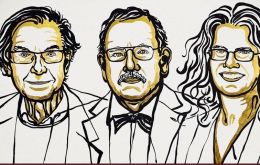
The 2021 Nobel Prize in Physics has been awarded to two climate change experts in addition to an Italian scientist, it was announced Tuesday.
-
Monday, September 27th 2021 - 08:54 UTC
Paraguayan meat production set to achieve historic profits in 2021
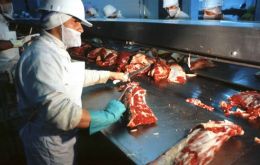
Paraguayan livestock traders foresee profits near the US $ 2 billion by the end of a most favourable 2021 for the activity, National Service for Animal Quality and Health (Senacsa) José Carlos Martín announced over the weekend in Asunción.
-
Wednesday, September 22nd 2021 - 08:10 UTC
Bolsonaro: “we fought the virus and unemployment simultaneously with the same responsibility”

President Jair Bolsonaro highlighted on Tuesday, in New York, Brazil's work on environmental preservation and the fight against climate change. He also emphasized that he always defended fighting the virus and unemployment simultaneously and with the same responsibility, and claimed lockdowns have “left a legacy of inflation, particularly in foodstuffs around the world.”
-
Saturday, September 18th 2021 - 08:58 UTC
Paraguay River reported to be close to historic downspout levels
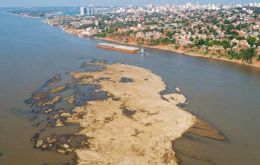
Paraguayan authorities have reported the Paraguay River is merely 9 centimeters from its all-time low as it dropped yet another 3 centimeters Friday in Asunción.
-
Thursday, September 16th 2021 - 09:15 UTC
International Day for Protection of the Ozone Layer, 16 September

The ozone layer, a fragile shield of gas, protects the Earth from the harmful portion of the rays of the sun, thus helping preserve life on the planet. The phase-out of controlled uses of ozone-depleting substances and the related reductions have not only helped protect the ozone layer for this and future generations but have also contributed significantly to global efforts to address climate change; furthermore, it has protected human health and ecosystems by limiting the harmful ultraviolet radiation from reaching the Earth.
-
Thursday, September 9th 2021 - 08:50 UTC
British Pavilion in Expo Prado focuses on climate change; Falklands stand promotes trade and tourism

The British Embassy will be present at the Uruguayan Expo Prado 2021 for the eighth consecutive year with a pavilion focused on promoting different initiatives to help combat climate change. In November this year, the UK will host the United Nations Climate Change Conference, COP26, in Glasgow, Scotland.
-
Wednesday, September 8th 2021 - 08:08 UTC
Europe experienced the hottest summer, EU scientists
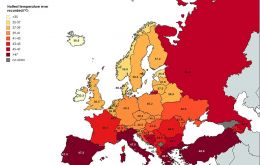
Europe experienced its hottest summer so far, a slightly higher than the previous seasons extending from June to August, according to scientists from the European Union.
-
Saturday, September 4th 2021 - 09:18 UTC
French President against EU-Mercosur deal over environmental concerns

France's President Emmanuel Macron Friday insisted his government would oppose the trade deal between the European Union and Mercosur due to “incompatible” differences regarding climate issues.
-
Wednesday, August 18th 2021 - 09:12 UTC
Plastic pollution and ocean acidification reduce Antarctic krill development, BAS research
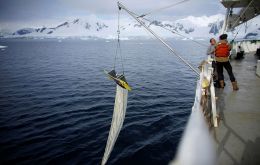
Plastic pollution combined with ocean acidification hinders the development of Antarctic krill in the Southern Ocean, research published in Marine Frontiers reveals.
-
Friday, August 13th 2021 - 15:52 UTC
Chilean agriculture and fruit producers suffering the hydric crisis
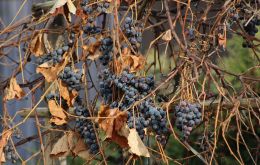
Chile faces a “state of shock in agriculture and fruit growing” because of the severity of the hydric crisis and sustained drought, to which must be added the driest July in the country's history, pointed out the president of the Chilean Federation of Fruit Producers, Jorge Valenzuela.
